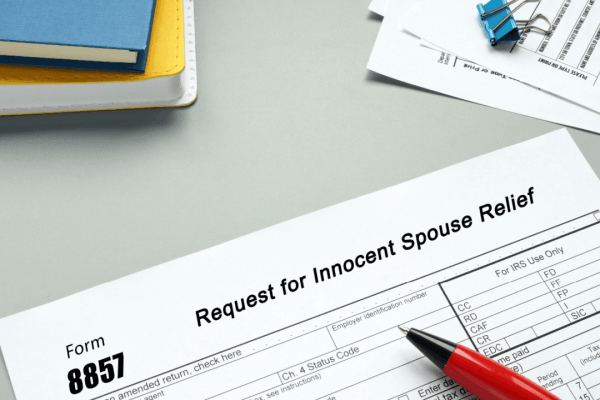Is Tax Debt Dischargeable in Bankruptcy? What You Need to Know

Is Tax Debt Dischargeable in Bankruptcy and What Are the Rules?
Is tax debt dischargeable in bankruptcy? The answer is: sometimes. Whether you can eliminate tax debt through bankruptcy depends on several factors, including the type of tax, the age of the debt, and your compliance with tax filing requirements. Understanding these rules is crucial if you’re considering bankruptcy as a solution to your tax problems.
Tax Debt and Chapter 7 Bankruptcy
Chapter 7 bankruptcy, often referred to as “liquidation bankruptcy,” allows for the discharge of certain debts. However, not all tax debts qualify.
Conditions for Discharging IRS Debt in Chapter 7
To discharge federal income tax debt under Chapter 7, the following criteria must be met:
The 3-2-240 Rule:
- 3 Years: The tax return was due at least three years before filing for bankruptcy.
- 2 Years: The tax return was filed at least two years before filing for bankruptcy.
- 240 Days: The tax debt was assessed by the IRS at least 240 days before filing for bankruptcy.
Debts Not Eligible for Discharge
Even if the above conditions are met, certain tax debts remain non-dischargeable:
- Taxes for which no return was filed.
- Taxes associated with fraudulent returns.
- Trust fund taxes, such as payroll taxes withheld from employees.
Tax Debt in Chapter 13 Bankruptcy
Chapter 13 bankruptcy involves a repayment plan over three to five years, allowing individuals to pay off debts in a structured manner.
Treatment of Tax Debt in Repayment Plans
Under Chapter 13:
- Priority Tax Debts: Recent income taxes and other priority tax debts must be paid in full through the repayment plan.
- Non-Priority Tax Debts: Older income tax debts that meet certain criteria may be treated as unsecured debts and discharged at the end of the repayment plan
What Happens at the End of the Chapter 13 Term
Upon successful completion of the repayment plan:
- Remaining eligible unsecured debts, including qualifying tax debts, may be discharged.
- Non-dischargeable tax debts must be paid in full during the plan.
What Kinds of Tax Debt Can Be Discharged?
Understanding which tax debts are dischargeable is essential, especially since some situations overlap with broader IRS debt forgiveness programs.
Income Taxes vs. Other Taxes
- Dischargeable: Federal income taxes meeting the 3-2-240 criteria.
- Non-Dischargeable: Payroll taxes, fraud penalties, and taxes associated with unfiled or late returns.
For a deeper understanding of this process, review the guidance on filing for Chapter 13 bankruptcy.
Role of Tax Returns and Filing Compliance
Timely filing of tax returns is critical. Late or unfiled returns can render tax debts non-dischargeable.
Impact of Penalties and Interest
While penalties and interest on dischargeable taxes may also be discharged, those associated with non-dischargeable taxes remain owed.
Common Reasons Tax Debt Isn’t Dischargeable
Several factors can prevent the discharge of tax debts:
Late or Fraudulent Tax Returns
Filing returns late or submitting fraudulent returns disqualifies the associated tax debts from discharge.
Ongoing Tax Audits or Unfiled Returns
Active audits or unfiled returns can complicate bankruptcy proceedings and affect discharge eligibility.
Trust Fund Taxes and Penalties
Taxes withheld from employees (trust fund taxes) and associated penalties are not dischargeable under bankruptcy.
Learn more about exclusive bankruptcy lead services available to attorneys helping clients with cases like these.
Understanding Bankruptcy Rules Before Relying on Discharge
Bankruptcy can offer relief from certain tax debts, but strict rules apply. It’s essential to:
- Ensure compliance with tax filing requirements.
- Understand which debts are eligible for discharge.
- Consult with a bankruptcy attorney to navigate the complexities of the process.
Talk to a Bankruptcy Attorney About Discharging Tax Debt
If you’re struggling with tax debt, consulting a bankruptcy attorney can provide clarity on your options. They can assess your situation, determine eligibility for discharge, and guide you through the bankruptcy process.
Frequently Asked Questions
1. Is tax debt dischargeable in bankruptcy under Chapter 7?
Yes, if it meets specific criteria, including the 3-2-240 rule and no fraud or willful evasion.
2. Can I discharge IRS penalties or interest?
Penalties and interest on dischargeable taxes may also be discharged. However, those related to non-dischargeable taxes remain owed.
3. Do I need to file all past returns first?
Yes, filing all required tax returns is necessary before seeking discharge through bankruptcy.
4. What happens if I have payroll tax debt?
Payroll taxes are considered trust fund taxes and are not dischargeable in bankruptcy.
5. Will the IRS stop collection efforts during bankruptcy?
Filing for bankruptcy triggers an automatic stay, halting most collection activities by the IRS during the proceedings.
Key Takeaways
- Is tax debt dischargeable in bankruptcy? Yes, under specific conditions.
- Chapter 7 may discharge qualifying income tax debts.
- Chapter 13 allows for repayment and potential discharge of certain tax debts.
- Compliance with tax filing and payment is crucial.
- Consulting a bankruptcy attorney can help determine your options.
Free Tax Case Review
If you are struggling with tax debt or have received a letter from the IRS complete the form below.Advertising. This site is a marketing service and does not provide legal or tax advice. Submitting information does not create an attorney-client, tax professional-client, or any other advisory relationship. Results are not guaranteed. A list of participating attorneys, tax firms, and tax providers is available here.
IRS Audit
You received an audit notice from the IRS
Tax Debt Relief
You owe the IRS money and are looking for relief options
Wage Garnishment
The IRS is taking part of your wages to pay off your debt
Tax Lien
The IRS put a legal claim on your property
IRS Property Seizure
The IRS is going to take your property to pay down or pay off your tax debt
Penalty Abatement
You want to request to remove or reduce penalties assessed by IRS
Innocent Spouse Relief
Relief from joint tax debt caused by your spouse or former spouse
Tax Debt FAQ
Common facts, questions and answers about tax debt and tax debt reilef
Tax Debt Lawyer
A tax debt lawyer can help you with your tax debt problems
Recent Posts
- Who Is Eligible for Innocent Spouse Relief and How Does It Work?
- What is an Effective Tax Strategy for Married Couples
- What are the Proofs of Innocent Spouse Relief?
- What Form Do You Use for an Innocent Spouse? | Complete IRS Filing Guide
- What Are the Four Types of Innocent Spouse Relief? | Your Complete Guide



